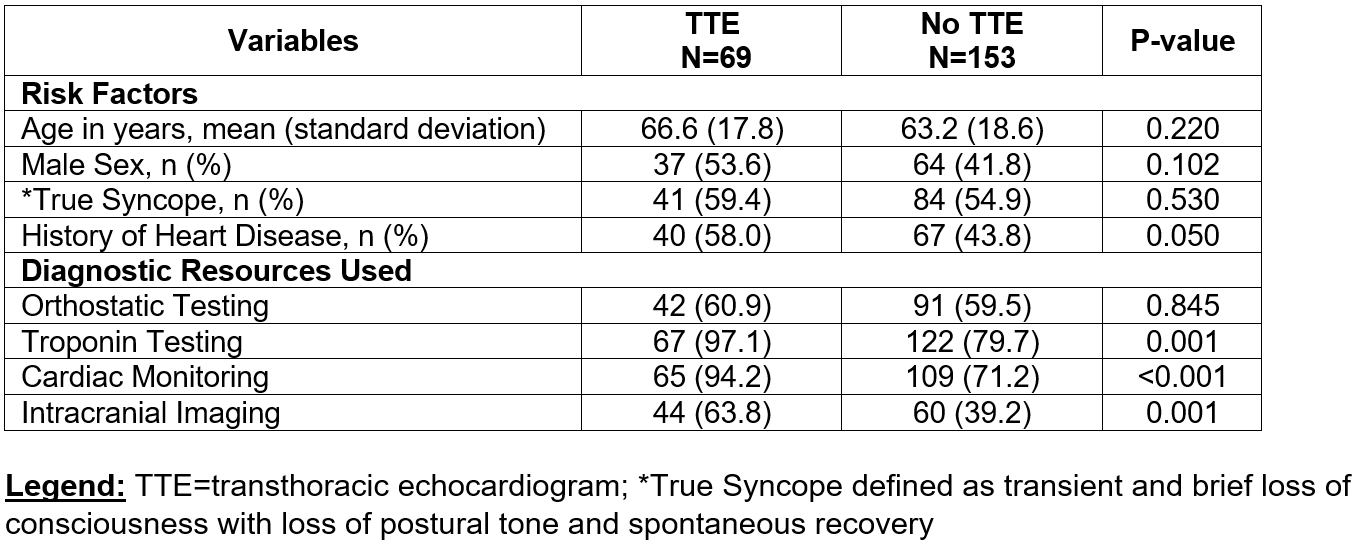Background: Guidelines recommend in-hospital evaluation with cardiac monitoring and transthoracic echocardiogram (TTE) to assess syncope in patients that are considered high-risk for major adverse cardiovascular events. We sought to identify variables associated with performing TTE in patients presenting with syncope.
Methods: We abstracted demographic and clinical data from all patients evaluated for syncope at the short stay unit of a large university hospital from January 2018 to June 2018. Patients were excluded if they presented with an acute transient ischemic attack, acute change in mental status, trauma causing loss of consciousness, alcohol intoxication, illicit drug use, vertigo or hypoglycemia. We used multivariable logistic regression models to identify variables associated with performing TTE in patients with syncope.
Results: A total of 222 cases of syncope met inclusion criteria and were included in the analysis. The patient cohort had a median age of 67 years (interquartile range, 53-79 years) and 101 (45.5%) were male. True syncope, defined as transient and brief loss of consciousness with loss of postural tone and spontaneous recovery, was ascertained in 125 (56.3%) patients. Of the 222 cases, 69 (31.1%) had TTE, 174 (78.4%) had cardiac monitoring, and 104 (46.9%) had intracranial imaging. Variables associated with performing TTE included troponin testing (odds ratio [OR], 4.72; 95% confidence interval [CI], 1.03-21.72), cardiac monitoring (OR, 4.55; 95%CI, 1.49-13.92), and intracranial imaging (OR, 2.30; 95%CI, 1.21-4.37). Age, sex, true syncope, and history of heart disease were not associated with performing TTE.
Conclusions: Almost half of cases evaluated for syncope do not have all the elements that define true syncope. Performing TTE is associated with use of other diagnostic resources but is not associated with important risk factors for cardiac events. When evaluating syncope, efforts to align resource utilization with clinical risk appear necessary.


